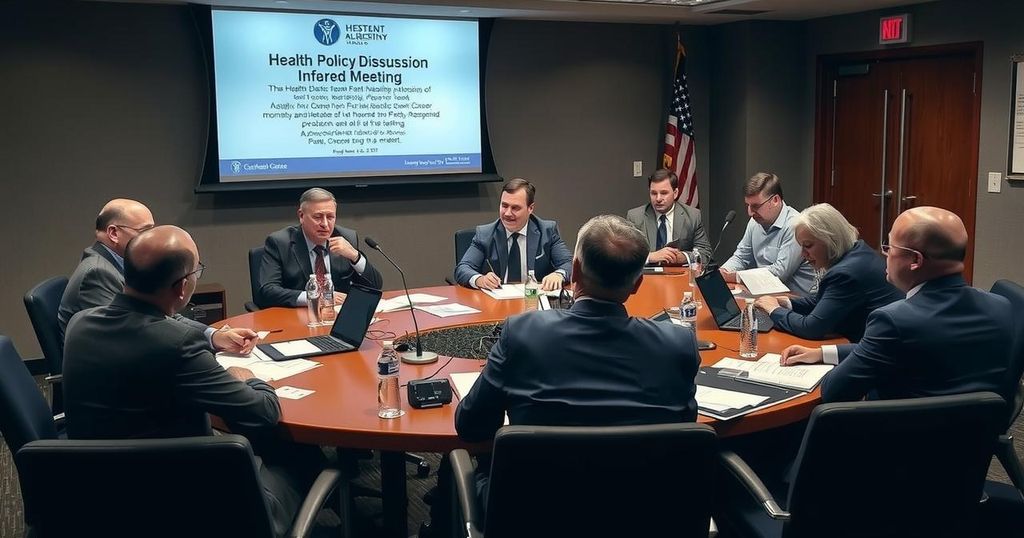At COP29, WHO led a meeting resulting in the creation of a coalition for health integration in climate discussions, known as the BCPCCCH. Despite this advancement, critics highlight that the coalition’s informal nature and lack of binding commitments fall short of addressing the urgent health impacts of climate change. The outcomes starkly contrast last year’s event, with significant disparities in expectations between civil society and state commitments.
At the COP29 summit in Baku, the World Health Organization (WHO) facilitated a pivotal but low-key meeting that resulted in a coalition aimed at integrating health within climate negotiations. This coalition, termed the ‘Baku COP Presidencies Continuity Coalition for Climate and Health’ (BCPCCCH), seeks to ensure future health-related discussions at UN climate summits. Despite this milestone, the coalition’s outcomes lack the impactful commitments sought by health advocates, most notably the pressing need to address climate change’s toll, which claims approximately ten million lives each year due to related health issues. The meeting starkly contrasted with last year’s vibrant COP Health Day in Dubai, where significant global attention was garnered. This year, with just 18 participants on a virtual platform, the event’s atmosphere was notably subdued. Azerbaijani Minister of Health Teymur Musayev emphasized the need for integrated health and climate policies, stating, “By signing the Letter of Intent, we commit to a shared vision of a world where climate and health policies are not isolated…” However, critics argue that these discussions must lead to tangible actions rather than merely serving as a platform for dialogue. For communities facing the brunt of climate change, the coalition’s informal nature and lack of binding commitments seem to fail on crucial delivery. Frontline stakeholders are calling for an annual funding of $5 trillion, viewing this as a minimal necessity to address climate-related damages and health disparities. However, most developing nations are aiming lower, further illustrating the disparity between civil society’s expectations and nations’ commitments. Furthermore, Nigeria’s Minister of Health, Mohammed Ali Pate, highlighted the disconnect between lofty global rhetoric and the harsh realities faced by countries operating with limited resources. As the summit progresses, the challenge remains to translate recent procedural advancements into actionable health improvements. In conclusion, while the establishment of the Baku coalition signifies an incremental advance in health advocacy within climate discussions, it raises concerns about the efficacy of these initiatives without clear commitments or resources. Moving forward, the significant test for health policies within climate negotiations will be their ability to yield substantive progress and influence the health of populations globally, especially as COP30 awaits under Brazil’s new leadership.
The article discusses the outcomes of the World Health Organization’s involvement at COP29 in Baku, where a new coalition was formed to enhance health’s representation in climate discussions. It highlights the contrast between events in previous years, such as COP Health Day in Dubai, and emphasizes ongoing frustrations among health advocates regarding the effectiveness of UN climate negotiations. The need for realistic funding and binding commitments remains a central theme, as communities demand greater action against the health impacts of climate change.
In summary, the formation of the coalition at COP29 marks a noteworthy development in advocating for health within the climate agenda. However, its lack of binding commitments and limited participation underlines the challenge of translating this momentum into significant real-world actions. The effectiveness of future climate negotiations will depend on the willingness of states to prioritize health outcomes amidst climate action plans.
Original Source: healthpolicy-watch.news






